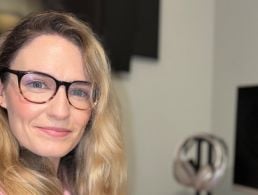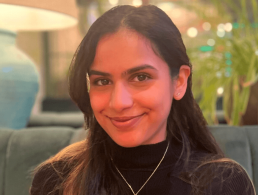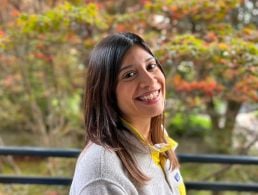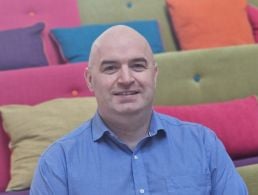Danny Walsh told Siliconrepublic.com about the journey he took to becoming a penetration tester at Fidelity Investments.
Through hard work, some guidance from others and developing the right skills, Danny Walsh landed his “dream job” at Fidelity Investments.
He told us about the path that led to his current role as a penetration tester and why he loves working in the world of cybersecurity.
What first stirred your interest in a career in this area?
As a kid, I was always fascinated with the idea of computer hackers. I think movies like Hackers, Sneakers and War Games first peaked my interest at a young age. When I found out that people get paid to legally hack or, in other words, conduct penetration testing, I realised that was the career I wanted to pursue.
While at college, I became very interested in the crypto asset space. This was a brand new field at the time and I knew it was an area I would like to work in eventually because I saw the disruptive potential of the technology.
What experiences led you to the role you now have?
I have a degree in computer applications from DCU. While at college, I worked in a number of technical and non-technical roles.
I started off as a webmaster for the college’s music society, I progressed to a technical support representative for Apple, and also started a software company with a friend.
What were the biggest surprises or challenges you encountered on your career path and how did you deal with them?
The biggest surprise was how relatively straightforward it was for me to get my dream job. It required a proactive mindset and a lot of work on my behalf, but everyone I encountered along the way was very supportive. I think the most important thing is to find out where you want to get to, tell everyone about it, and then figure out an incremental plan for how to get there.
Now that I have my dream job, I want to remain challenged. Offensive cybersecurity is a rapidly evolving field and in order to keep my skills relevant, I’m constantly learning about new attack vectors and how to make use of the latest tools.
Coming from a development background has been a huge advantage, though. Years of developing applications in Java and PHP have given me an invaluable insight that would be hard to develop otherwise.
Was there any one person who was particularly influential as your career developed?
I would say my first-year college lab tutor had more of an influence on my career than any other person. He joined Fidelity two years ahead of me and spoke very highly of the organisation.
He went on to refer me and then, when I completed the graduate programme, he set up an introduction to Fidelity’s director of penetration testing. Having an advocate helped me land my dream job. That, and all of the work I put in to develop the skills to do it!
What do you enjoy about your job?
What I enjoy most about my job is that no two days are the same. This keeps things interesting and prevents me from going into autopilot.
While every engagement starts with a standard approach, each will require a certain amount of creative problem-solving. I find it very rewarding when I have an opportunity to think outside the box.
What aspects of your personality do you feel make you suited to this job?
Other than an aptitude for computers, the most important personality trait a penetration tester can have is persistence – the ability to stick with a problem until a solution is found, no matter how challenging it is.
Did Fidelity Investments support you on your career path?
During the Fidelity graduate programme, I consistently expressed my interest in the field of cybersecurity. When it came time to allocate roles, I was given the opportunity to join the platform security operations team. While on that team I met with the director of penetration testing to learn more about the division and find out what I could do in my own time to upskill in the areas required.
At the time, it was recommended that I incorporate an entry-level penetration test certificate into my professional development goals. My manager at the time was incredibly supportive of this and Fidelity sponsored me to achieve that goal.
What advice would you give to those considering a career in this area, or just starting out in one?
I couldn’t recommend the field of cybersecurity highly enough. It’s a field that’s in high demand with a wide array of technical and non-technical roles.
In terms of getting started in any field, I think it’s very beneficial to find a mentor – either someone who’s currently working in the field or who previously has. They will be able to provide a certain amount of guidance and advice to help give direction to your efforts early on.




